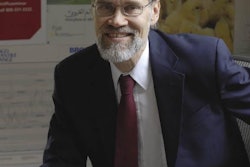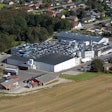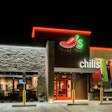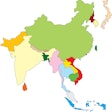As poultry farmers, processors and marketers, you are the best at what you do – producing and delivering poultry proteins to consumers around the world. But there’s another job that those of us involved in poultry production may tend to overlook – maybe, sometimes, even shirk. It’s up to us to correct public misperceptions about our industry’s role in society, and our practices and products. Nobody else is going to do this for us, and this is a role that’s increasingly critical to our survival as an industry.
Recently, poultry producers were reminded that they shouldn’t take the job of shaping public opinion lightly. Wearing his trademark black cowboy hat, Trent Loos told a crowd at the International Poultry Expo and International Feed Expo (IPFE) that animal agriculture – including the poultry industry – is under attack and has been too passive in telling its own story.
Loos is a sixth generation U.S. farmer, who has taken his passion for a rural lifestyle to the radio air waves with a program called Loos Tales. In a daily radio program, aired on 150 stations in 14 states to around 4 million radio listeners, Loos responds to misinformation, mistruths and sometimes outright lies told about modern food production today. In his effort to bridge the gap between food producers and consumers, he has traveled to 29 states making live appearances before over 15,000 people in the past 12 months.
The poultry industry, Loos told an audience at the Expo, must take responsibility for telling its story and communicating the facts about the abundant, safe food supply available in our country.
“The greatest challenge that we face is the fact that our kids growing up on our own farms don’t have the pride in what their parents have accomplished that they should,” Loos said. “There is no challenge greater than getting our kids motivated and understanding that food production is a means of national security, and the United States farmer and rancher is better at it than anybody else in the world.”
After sharing a series of illustrations about the public’s lack of understanding about animal agriculture, Loos posed this question: “How do we educate people who don’t know the first thing about the cycle of life . . . that everything lives and everything dies, and that death with a purpose gives full meaning to life?” An important truth that’s being obscured, he said, is that poultry producers are good stewards in turning natural resources into the essentials of life.
Loos challenged listeners to begin telling their own stories and especially to counter misinformation when it occurs. “The opinion of the world about animal agriculture is constantly being shaped around us,” he said, “and we are not a part of that shaping.” But we all should be active participants in that process, he told listeners. “It’s up to us to be more involved in creating the correct perceptions of what we do,” he said.
“I wonder if we understand at what level consumers are at,” Loos mused. The lack of understanding is pervasive in society and isn’t limited to the rank-and-file but includes our educators and elected officials. “We can document that one-fourth of the U.S. Congress will openly admit that we as a nation would be better off producing our food in a third-world country and importing it back to our country,” he said.
“There are two industries on which our country’s security is dependent – food production and our military. If the food production system is misunderstood or perceived as boring, we’ve got to fix that and reposition what we do,” he said.
“It’s all in how we in agriculture position ourselves,” he said. “The perception about those of us in food production that use our hands every day to convert natural resources into a human consumable product is that we are backward people. That is a perception that you and I need to fix today.”
Here’s the task we face: Many consumers are being scared into believing that food is contaminated because of our production techniques. Many believe that food is produced by factories or on factory farms. It’s up to us to educate consumers and increase their level of trust in us and our products.


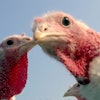

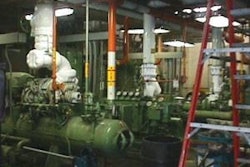
.jpg?auto=format%2Ccompress&fit=crop&h=167&q=70&w=250)
